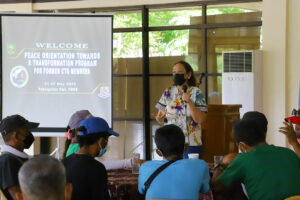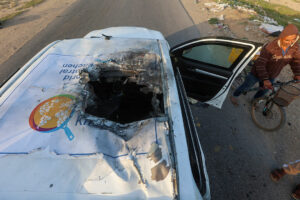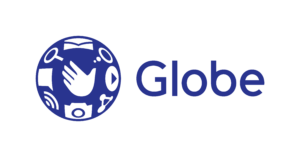It’s just a matter of routine

ROUTINE is part of the corporate executive’s life. The word itself comes from French “route,” which is also English for road or way, from which one does not stray. This corporate routine was indeed shaken up for three years with the lockdown and work-from-home protocol of the coronavirus pandemic. But slowly, the old routine of working in the office is coming back — with or without face masks.
Just like monks, school children and soldiers, the business executive is often ruled by routine. His authority is defined. He has a list of tasks and goals assigned to him, even how his performance of such tasks will be evaluated and rewarded with variable pay. His guaranteed annual cash compensation, if he fails in all his key result areas, is predetermined anyway. His continuing stay, however, is not always assured.
Work hours, including the time he needs to make available for motivational talks, team building, culture change and product launches are set. The executive is given an assigned workspace with a desk, sometimes also with a view of the outside cubicles. The benefits he is entitled to like health insurance, car, foreign travel, parking space and access to the executive dining room are defined. Some outside meals are chargeable if he is with a client or an industry regulator. He doesn’t always submit a call report.
Routine brings predictability to corporate life and sets mutual expectations. It is a comfort zone that relieves stress that can arise from new and unexpected developments. Custom ensures entrenchment of authority and privilege. In a static system, the ones on top can be secure in the knowledge that they will not be shaken out of their perch… until they are.
This routine is not always guaranteed. There are sometimes crises and developments that shake up the organization. The disequilibrium arises from many sources.
Technology, like online banking and AI, may change to favor outside consultants who will find the present set of skills (or talents) inadequate or unnecessary. A new leader may have been hired from outside who has no inkling of the current social structure (and the informal hierarchy that goes with it) and worse, little regard for its continued relevance. The traditional protector of the status quo may have retired or has been given a new job that limits his sphere of influence to the menu for lunch on Wednesday. It may even be a combination of all three — the organizational equivalent of a perfect storm.
When these strong winds of change blow, little remains nailed down to the ground. The corner office, unlimited doughnuts, trips overseas on business class, security detail against kidnapping and a regular car replacement every four years are all under review (This is not a country club). New sets of people are called to meetings, involving fewer than six participants, including the minute taker who concentrates only on the “next steps.”
Routine can be so embedded in the workplace that one who retires, either willingly or not, is thrown into a handicapped bathroom with no handrails.
Habits can be addicting. Executives who retire and lose their cherished routine end up with insomnia. Sometimes, they decide to become entrepreneurs and open a restaurant. This only exacerbates the uncertainty and volatility of the cash flow, and exhausts the retirement pay altogether. Changing the menu doesn’t always work.
Another option is working for a smaller company — better if very much smaller than the previous one. The habits are similar even if the perquisites are diminished. There are fewer free trips abroad and the lines to get to the plane are longer with the leg room for seats more cramped. Life, like seats, can be adjusted.
The creative executive, when pried out of years-long habits, needs to change his paradigm or shift it a little. From pampered guest, the metaphor changes to paying customer. Instead of clinging to routine, why not welcome the unexpected? The escape from monotony can be liberating.
Some routines of daily life persist. These include eating, shaving, taking a bath (and not slipping), tying one’s shoes and paying credit card bills that provide enough predictability (and anxiety) to approximate the cycles of the corporation.
Each day with a different routine is a gift. It doesn’t always come with ribbons.
Tony Samson is chairman and CEO of TOUCH xda
ar.samson@yahoo.com




